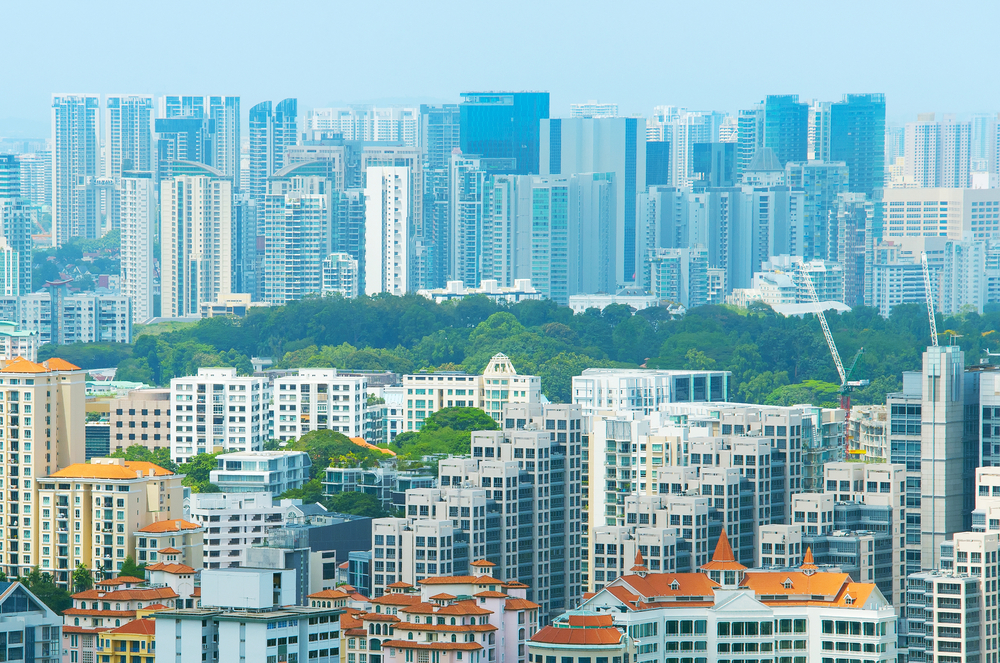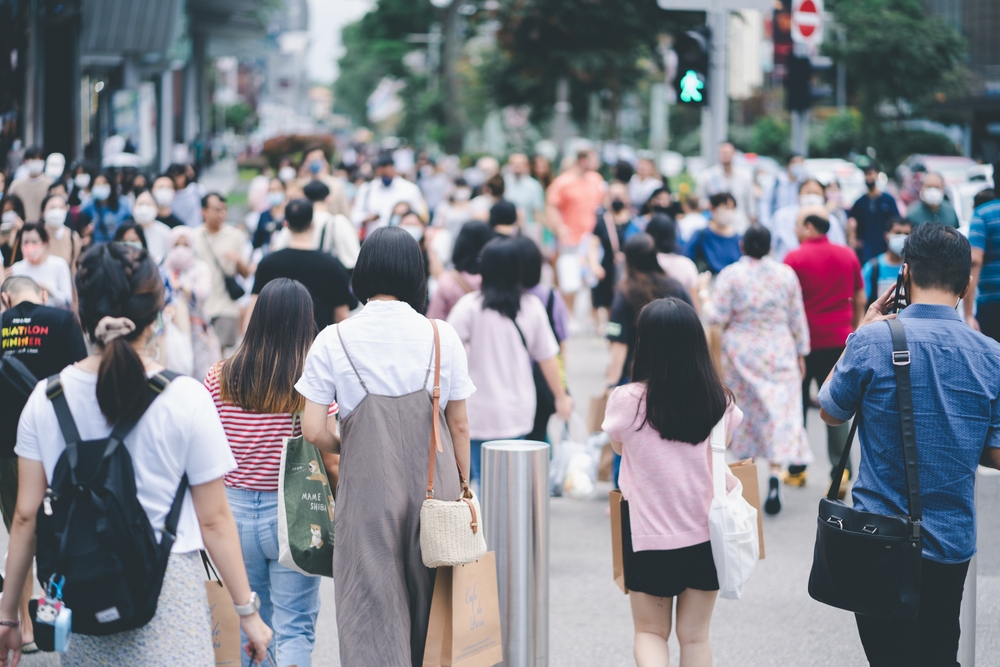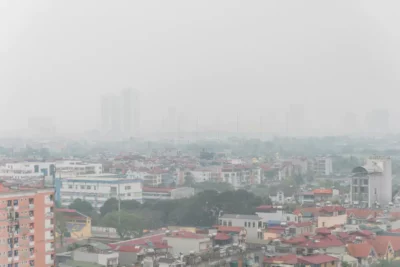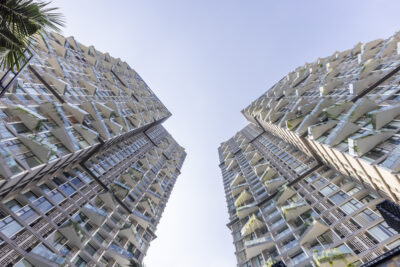Singapore rent prices stabilise as foreigner influx slows and housing stock grows
Singapore’s skyrocketing rent prices have come back down to earth somewhat as a post-pandemic influx of foreigners slows and new housing stock is bolstered

Traditionally, renters in Singapore have taken little heart from the phrase “what goes up must come down” — so rarely does that apply to house prices there. However, after years of enduring skyrocketing lets, they might finally be in luck.
Singapore’s housing market has slowed since the start of the year with prices coming down by around five percent in places.
On popular Newton Road, a studio apartment that was being rented for SGD4,000 (USD3,000) in September went for SGD200 less than three months later.
“A condo that used to take one week to close can now take one month or so if the landlord does not want to give in to tenants’ demands or meet them halfway,” says Mukul Jain, 42, a property agent in Singapore.
The slowdown comes as tenants push back against two years of rising prices.
Another agent, Samantha Foo, who helped sell the property on Newton Road, saw her earnings from commission soar 40 percent last year amid the demand. On some of her best days, she was having to whittle down groups of 20 and closing the deal within a day of the viewing.
Singaporeans are used to shelling out a large part of their wages on rent. But things got out of hand after as rents reached a record high following the pandemic.
Tenants were being hit by rent increases of between 20 and 30 percent or more after spending just a couple of years in the property.
One expat, Lauren, told the Financial Times the rent on her four-bedroom apartment had been hiked by 61 percent, prompting her to consider moving her family back to Hong Kong.
The rise was caused by a lack of housing due to pandemic-induced construction delays, as well as an influx of residents from China, Hong Kong, and Europe.
“While borders stayed closed, locals were renting due to remote work arrangements and those awaiting to collect keys to their new homes,” says Tan Tee Khoon, country manager of PropertyGuru Singapore.
Residents took to social media to vent their frustration with some likening it to other markets where Chinese capital has made real estate unaffordable for locals.
“Think Vancouver; this is basically what is happening in Singapore,” said one social media user.
“Come in, pay exorbitant prices for property, and drive the whole market up. Property owners rejoicing, the remaining Singaporeans not owning property getting screwed over. The rich get richer, poor get poorer,” they added.
Data showed rent per square foot in some central areas overtaking Hong Kong for the first time. In Q4 2022 Singapore pushed New York off the top spot for rental growth, growing to 28 from 23 percent in the previous quarter.
Leonard Tay, Knight Frank’s head of research in Singapore, calls the situation a “landlord’s market” with rents “likely to rise further.”
The tide, however, appears to be turning in favour of renters as an estimated 40,000 new homes—both public and private residential properties—are expected to be completed imminently.
Notable projects include Park Nova by Shun Tak Holdings, which has already scooped many accolades. The penthouse-topped vertical garden’s biophilic design incorporates greenery-filled, butterfly-shaped balconies throughout, with stellar views and numerous pools.
Another interesting newcomer is Juniper Hill, in Bukit Timah, which expands the portfolio of prolific developers Allgreen, whose properties are dotted around Singapore.
The government has also helped by raising taxes for property purchases, concerned that prices “could run ahead of economic fundamentals.” From April 27 both local and foreign buyers will have to pay higher stamp duties. It was the third round of cooling measures by the government following measures taken in December 2021 and September 2022.
Demand has largely been satisfied after the initial post-pandemic influx of foreigners and locals who rent as a temporary solution to their housing requirements while waiting for their new homes. Rents should soften a bit more before stabilising
“If left unchecked, prices could run ahead of economic fundamentals, with the risk of a sustained increase in prices relative to incomes,” the Finance Ministry and Monetary Authority of Singapore said in a joint statement.
Tay Kah Poh, an adjunct associate professor in real estate at the National University of Singapore, said the changing market conditions are now emboldening renters
“Tenants are resisting the 20 to 30 percent hikes we’ve seen,” said Tay.
“I reckon that demand has largely been satisfied after the initial post-pandemic influx of foreigners and locals who rent as a temporary solution to their housing requirements while waiting for their new homes. I expect rents to soften a bit more before stabilising.”
Yet just how much further rents are likely to drop is key. Many analysts agree that they will not return to what they were in 2021. This could hurt Singapore’s ability to compete with Hong Kong in drawing talent and competing as one of the world’s top financial destinations.
However, if rents soften too much, they could have the effect of making owning a second or third home less attractive, particularly amid high-interest rates and a slowing global economy.
Tay called the raising of Additional Buyer’s Stamp Duty, which doubled from 30 to 60 percent, “crippling”. For now, though, there will be many relieved that after two dizzying years, rents have reached their peak and are now on the descent. The trend has put a stop to the crazy bidding wars and wrested some power back from landlords.
This article was originally published on asiarealestatesummit.com. Write to our editors at [email protected].
Recommended
Hanoi’s air pollution crisis: Balancing urban growth with environmental sustainability
Hanoi’s worsening annual toxic smog is highlighting the pressures of balancing sustainability with rapid economic growth
U.S. tariffs pose challenges to china’s housing market amid economic slowdown
Escalating US tariffs are expected to strain China’s slowing economic growth and dampen buyer confidence, creating trouble for the country’s housing market
Dewan Architects’ Mohammed Adib leads with human-centred design and technological innovation in the Middle East and beyond
Mohammed Adib channels his childhood curiosity and dislike for design uniformity into his work at Dewan Architects + Engineers
UAE real estate shifts focus to sustainability and quality, revitalising iconic projects
The UAE has risen from its challenges to emerge as a more sustainable, quality-focused destination









